Life for teenagers can be complicated, scary, and filled with questions. Events in the news over the summer brought to light just how complicated residential life can be at a boarding school. We recognize this. We also recognize sexual and domestic assault and dating violence is not just a ‘boy’ issue. Nor is not just a ‘girl’ issue or a faculty/staff issue. It is an ‘us’ issue. If we do not actively work to shape school culture, it will shape us.
That’s what last night was about as we launched the Proctor Sisters Program.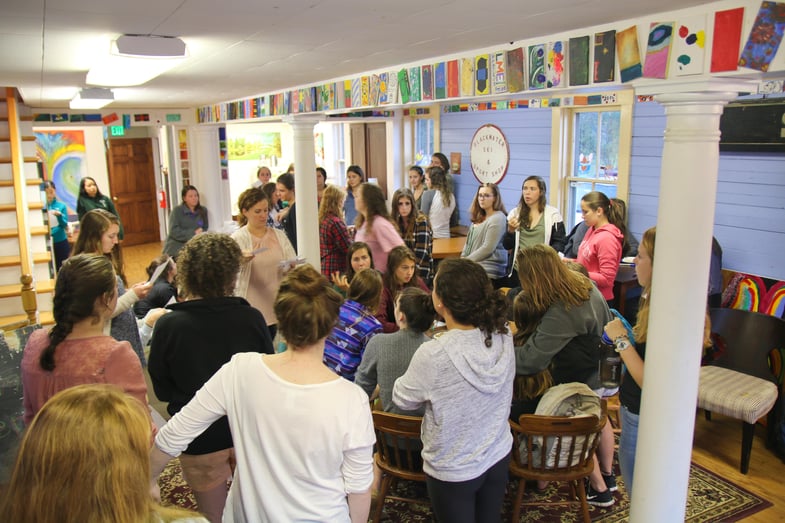
Sexual assault, dating violence, and healthy relationships are something we continue to talk about openly in order to identify, and hopefully prevent, unhealthy relationships within our community. We know that continuous education, accountability, and tough, honest conversations with ourselves are central to the intentional cultivation of school culture.
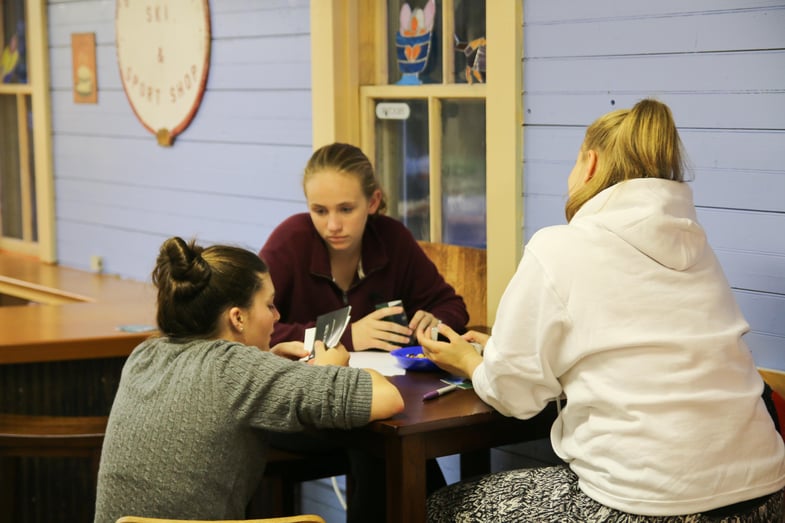
The work Proctor’s faculty did in late August to better understand and identify healthy relationships within the student body with the Central New Hampshire Crisis Center helped lay the foundation for the programming from which all our students will benefit moving forward. We know we do not have all the answers for our students, we’d be foolish to think we did. But we do have access to tremendous resources that help guide our work in this area.
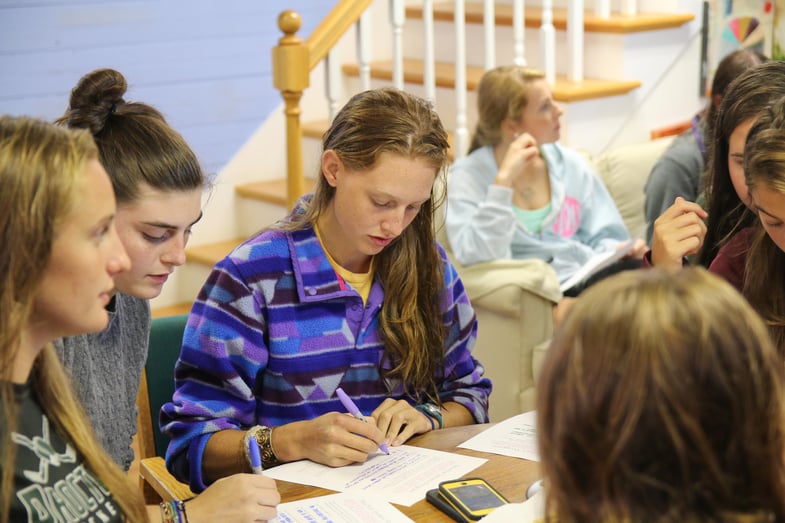
On Monday evening, residential life coordinator, Kyle Tremblay, invited returning and new girls to come to the Proctor Community House for a truly special evening. As each newly enrolled girl walked in the door, she was paired with a returning student as her sister. Each of the 90 girls in attendance received a core value bracelet (get yours here) and spent time writing and reflecting on what Proctor’s core values mean to them. It was a time of connection, of creating a partnership of support as we launch into this new school year.
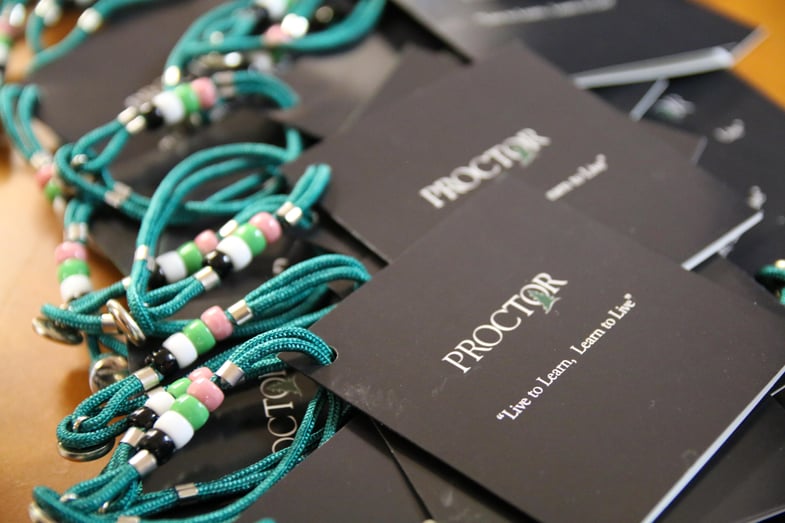
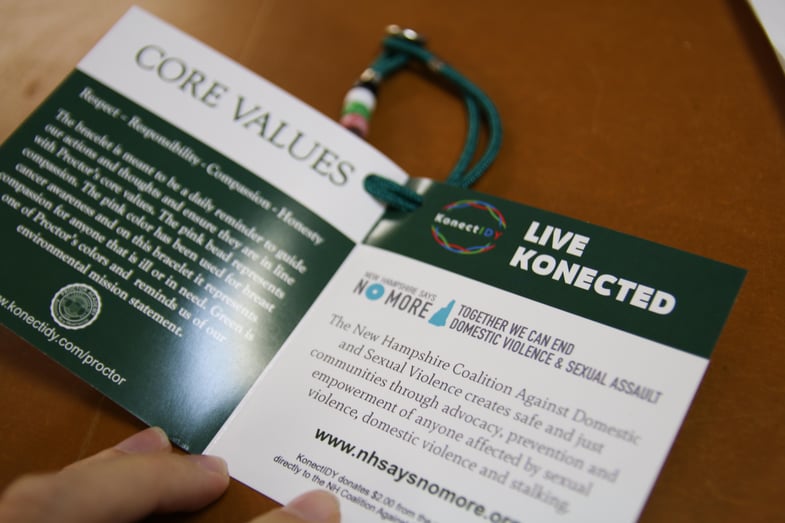
These bracelets not only serve an internal purpose in helping our students understand our core values, but also give back a portion of the sale price to the New Hampshire Coalition Against Domestic and Sexual Violence as part of the national “Say No More” campaign.
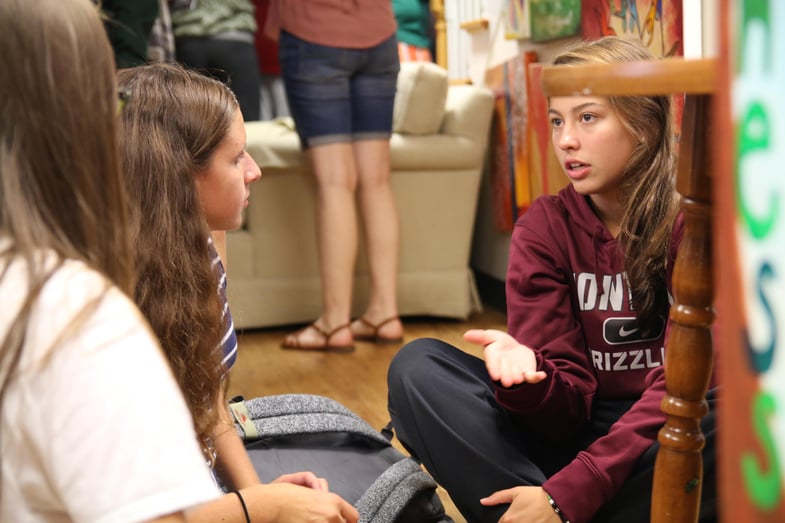
But shaping school culture does not occur during one amazing evening of connection at the start of the school year. It happens over time as learning, talking about, and modeling healthy relationships becomes who we are as a school community.
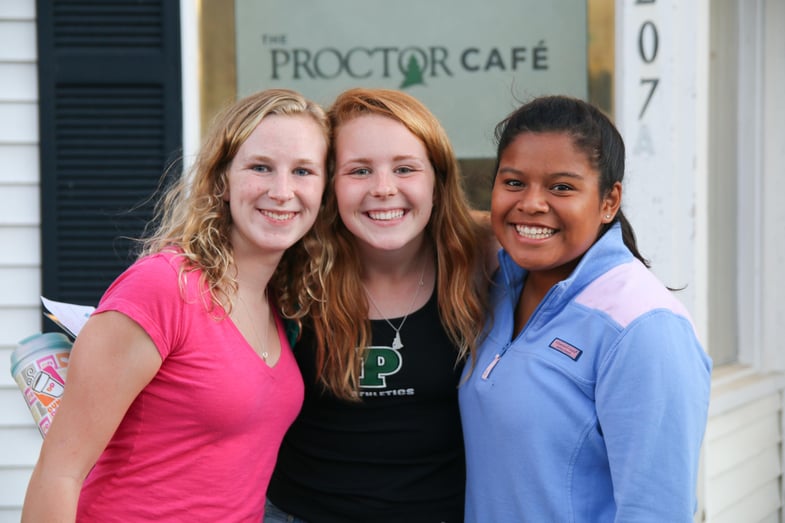
As the sisters program continues to develop and serve a portion of our student body, other students will begin intentional programming as well. Student leaders will benefit from training from the Central New Hampshire Crisis Center, the ninth grade dorm program will openly discuss sexual assault, dating violence, and healthy relationships as part of its curriculum, and we hope to bring local educator, Eric Barthold, to campus to discuss his thoughts on being a ‘real man’. These are important steps we are taking to educate our students.
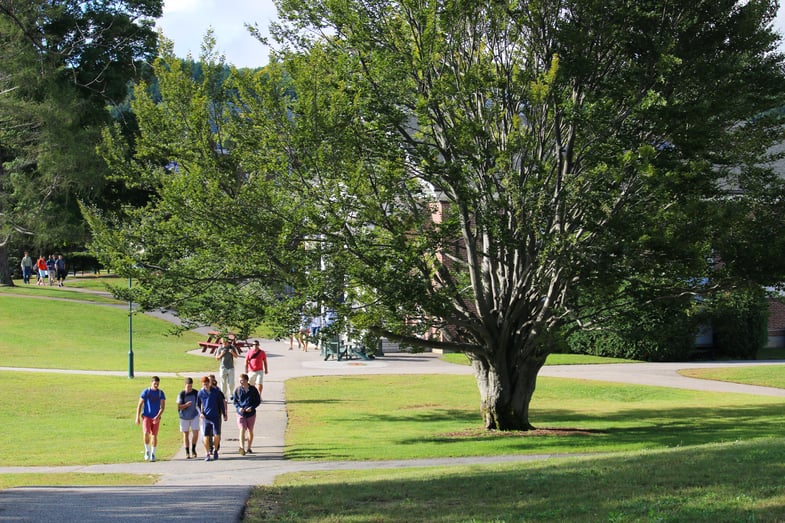
The work we need to do is real. It is challenging. And it can be uncomfortable at times. But it is the most important work we do as educators, and it is the greatest gift we can give the young men and women whose parents have entrusted us with their children.








